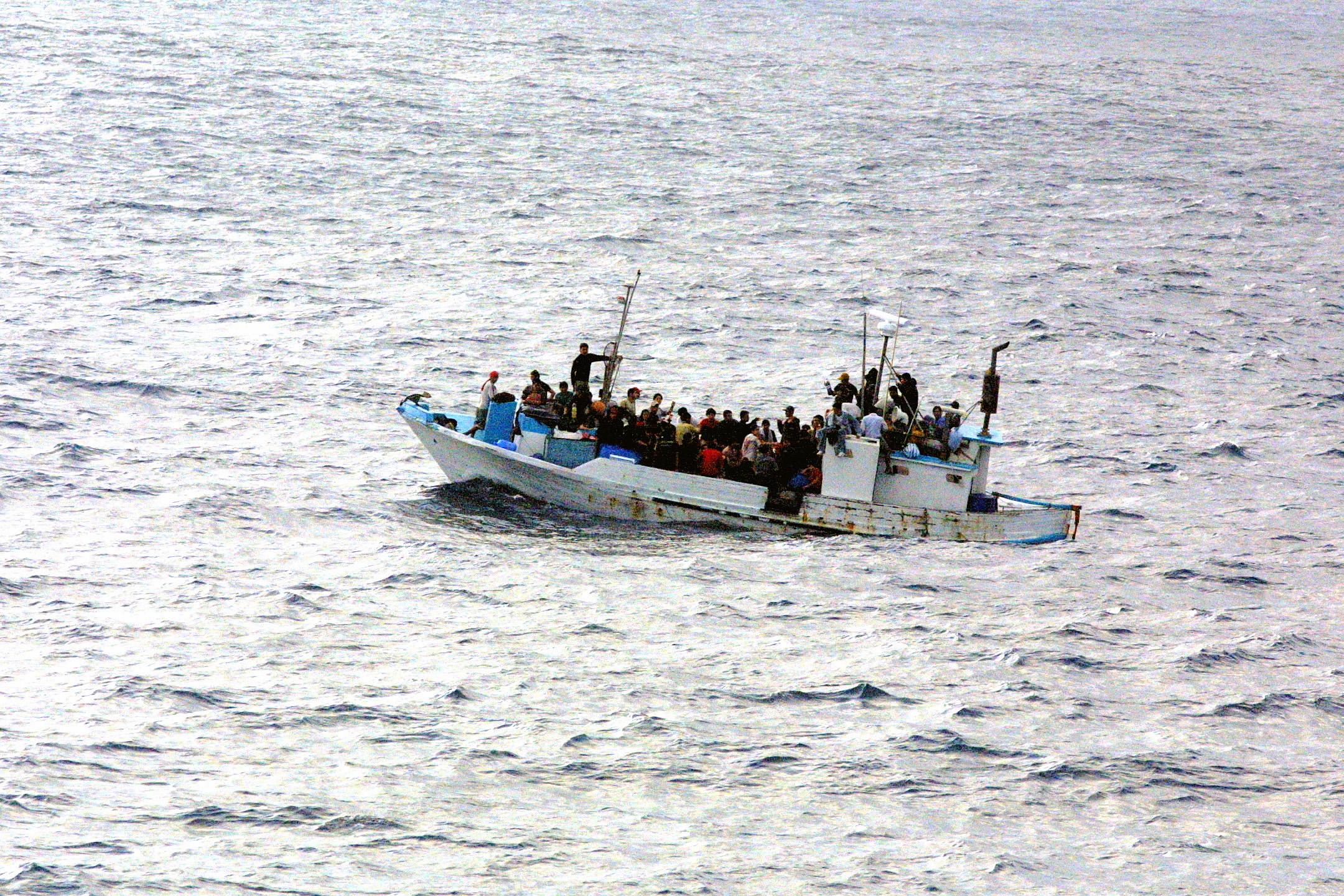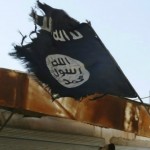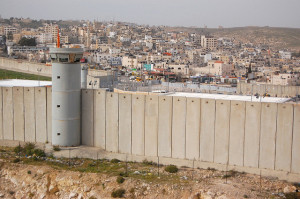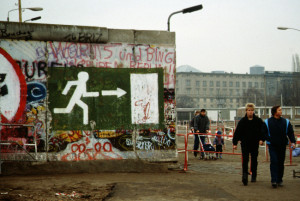by Wayne White
European governments are mulling over responses to the immigrant flood across the Mediterranean. Reducing causes for emigration in distant countries of origin like Eritrea and Syria would be invaluable. But it’s also a daunting task and will yield no near-term results. Unilateral EU military strikes against suspected Libyan migrant smuggling sites and shipping would involve innocent collateral casualties. So, high-level Western heft must be thrown behind UN diplomacy to reduce the chaos that makes Libya the premier immigrant smuggling highway. As I have warned, the longer the Libyan crisis lingers on the global back burner, the more adverse consequences it will produce.
The immigration crisis is but the latest ugly challenge stemming from Libya’s internal disarray. The al-Qaeda terrorist group Ansar al-Sharia in Libya (ASL), linked to the 2012 attack on the US consulate in Benghazi, has gained considerable sway in Libya’s second largest city. In parallel, al-Qaeda in the Islamic Maghreb (AQIM) and other extremists have gained a foothold in southwestern Libya. AQIM and company, along with northern Malian separatists, nearly seized Mali in early 2014. Only large-scale French military intervention thwarted that effort.
Meanwhile, looted arms, ammunition, and explosives from Muammar al-Qadhafi’s stocks have been moving across Libya’s vast Egyptian border. The Ansar Bayt al-Maghdis branch of the Islamic State (ISIS or IS) has used such munitions to wage a bloody guerilla war against Egyptian authorities from its Sinai lair. Similarly, ASL has exported violence to neighboring Tunisia. Over the past two years, Libyan extremists have slain numerous foreigners (mainly Western, Egyptian, and migrant Christians). Just prior to the huge spike in migration, militant groups joined the Islamic State in the eastern city of Derna, Sirte along Libya’s central coast, the Tripoli area, and the far southern part of the country.
Immigrant Smuggling Haven
Qadhafi opened the door to African migration via Libya. Angry over his treatment by the Arab League in 1998, Qadhafi turned toward Africa, declaring: “The Arab World is finished: Africa is paradise.” He invited African workers to seek jobs in Libya, and tens of thousands came. Most Africans found no work, so many sought to reach Europe. Over 10 years ago, thousands already were trying the sea route to Italy each year, with Qadhafi signing an agreement with Rome to help curb the flow in 2004.
When Qadhafi fell, immigrant trafficking shifted into high gear, exploiting Libya’s instability. Charging large migrant fees and making deals with local militias, smugglers secured boats, weapons, and advanced technology. Recently, immigrants from various Arab countries in crisis joined the expanding African migrant flow.
Struggling Libyan local authorities are practically helpless. A coast guard officer in Sabratha, the largest Libyan migrant departure port, recently said that trying to intervene “would be suicidal.” He added: “When you see smugglers with anti-aircraft guns mounted on pickup trucks on the beach and you have…a rifle, what are you going to do?”
Libya’s Political Maelstrom
Since 2013, Libya has had two rival governments, one in the east and the other in the west. The Libyan militia leader Ibrahim Jathran declared an eastern autonomous government in November 2013. The Libyan parliament in Tripoli, the General National Congress (GNC), could not suppress Jathran. A division between Islamists and secular nationalists, each faction backed by a powerful likeminded militia, has undermined the GNC’s effectiveness. Then, in early 2014, ambitious ex-Qadhafi general Khalifa Haftar launched “Operation Dignity” in the east to rid the country of “terrorists.”
Despite the mess, parliamentary elections were held in June 2014 for a new House of Representatives (HOR) to replace the interim GNC. However, only a minority of the Libyan electorate participated in electing a relatively secular HOR (different than the more Islamist GNC). Within two months, the Islamist militia behind the GNC Islamists (renamed “Libya Dawn”) based in Misrata near Tripoli drove its secular rival (based in Zintan south of Tripoli) from the capital. Libya Dawn (LD) then propped up the Islamist members of the defunct GNC as a rival government to the internationally recognized HOR (which fled east to the city of Tobruk). Since then, Haftar secured Jathran’s loyalty, Zintani help, the support of Libya’s small armed forces, and aid from Egypt and the UAE. He drove the ASL from Benghazi, prompting the HOR to commission him as commander of the Libyan Army.
Overall, neither the HOR nor the GNC/LD combination controls a lot of territory beyond largely coastal strips. Consequently, all recently established IS affiliates remain in place, along with other extremist elements in southwestern Libya. Only the ASL has been severely weakened. Amid the governance crisis, Libyan oil exports nosedived, causing the HOR to dig into Libya’s currency reserves to pay the public sector, including the military, police, and banking salaries. Despite general instability, this keeps many banks, commercial ports, and other national institutions open to sustain some semblance of an economy. Nonetheless, in Libya’s dysfunctional financial “system,” delayed salary payments are endemic, triggering strikes that shut down oil facilities, including one already this week.
What Can Be Done?
UN Special Representative for Libya Bernardino Leon has been striving since last December to bring the HOR and the GNC/LD together. He hopes to produce a ceasefire, a national unity government, and a resumption of a sensible political process. Working largely alone, save for distant UN, US, and European expressions of support, Leon managed last month to initiate face-to-face talks in Morocco. The task of narrowing differences between Tripoli and Tobruk has made some progress.
Nonetheless, HOR warplanes bomb Tripoli on the eve of almost every round of talks in an attempt to sabotage them (most recently in mid-April). Haftar (probably egged on by Egypt) may well be the instigator. Although the GNC/LD has roundly denounced the ASL, all extremists, and is fighting IS in Sirte, Haftar seems to agree with Egyptian President Abdel Fattah el-Sisi’s view that almost all Islamists must be suppressed.
Senior UN, US, and European officials need to join this process to push the different sides toward compromise and to get rival prime ministers and military leaders to Morocco so deals can be cut. They must also squeeze Haftar, Egypt, and other disruptive elements to stop attempts to scuttle the talks.
Prior to an April 23 EU conclave on the immigration crisis, some European support for military action in Libya emerged. Italian Defense Minister Roberta Pinotti said: “We know where the smugglers keep their boats, where they gather. The plans for military intervention are there.” Yet, strikes would likely involve immigrant and innocent Libyan casualties. Although Italy tries to drum up support for military measures, German Chancellor Angela Merkel has underscored that military action requires a “UN Security Council Resolution or a unity government in Libya. We have neither.” UN Secretary General Ban Ki-moon, meeting today with the Italians, has opposed military action, maintaining there are “no alternatives” to the Libyan diplomatic track.
Desperate for any international recognition, the Tripoli “government” offered to cooperate with the EU to curb migration. The offer was rebuffed since the GNC/LD government is still considered illegitimate. So GNC/LD Foreign Minister Mohammed al-Ghirani declared any EU military measures would be “confronted.”
The best way for the EU to reduce migration and disasters at sea right now is to vigorously back Leon’s effort to assemble a Libyan national unity government. Since the HOR and GNC/LD have reached a military stalemate, a first step could be a Tripoli-Tobruk ceasefire and cooperation accord against both extremists like IS and migrant traffickers. The UN, US, and EU should lean on Tobruk (plus HOR military backers Egypt and the UAE) to compromise. They should also demand that Tripoli prove its usefulness since most migration emanates from the GNC/LD-dominated west. In such a scenario, and perhaps with some requested (not unilateral) EU military help, pockets of IS along the coast could be taken out, and the immigrant flow across the Mediterranean could decline over a fairly short time.






Apparently the regime change in Libya a couple years back which ousted Ghadafhi has Hilary Clinton’s fingerprints all over it. Big time. So much so it raised concerns inside the Pentagon that removing somebody like Ghadafhi who was behaving himself and not causing any problems could lead to something much worse.
This is the real scandal, not the Benghazi embassy incident.
Another reason for the U.S. to retrench its forces away from any further adventures, especially ones from the helter skelter direction being implemented by the war mongers in power. One might classify the direction as being like dripping oil on water, each drop spreading out to different hues/degrees, but not concentrating to any degree aside from the initial drop. In other words, a hopeless endeavor..